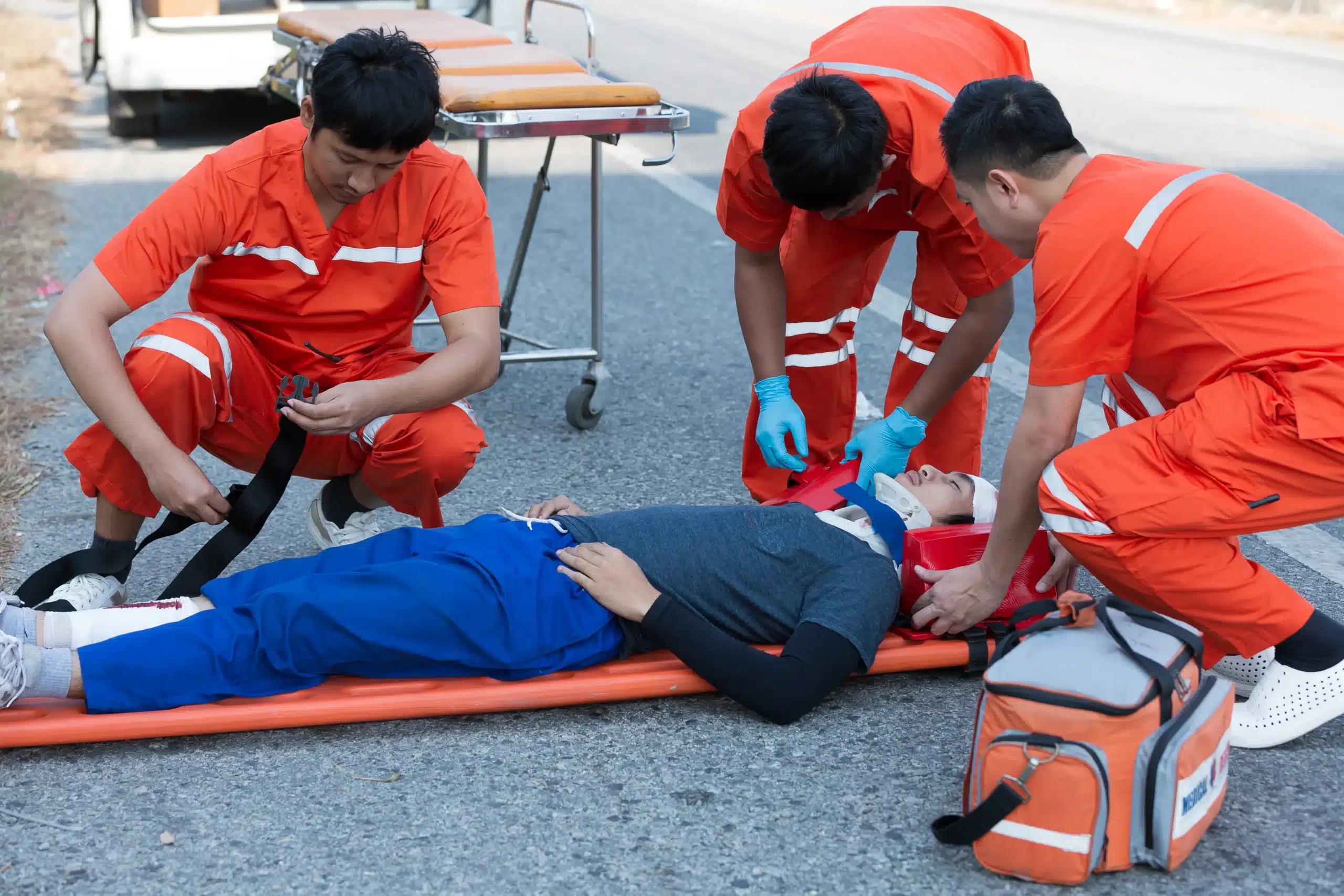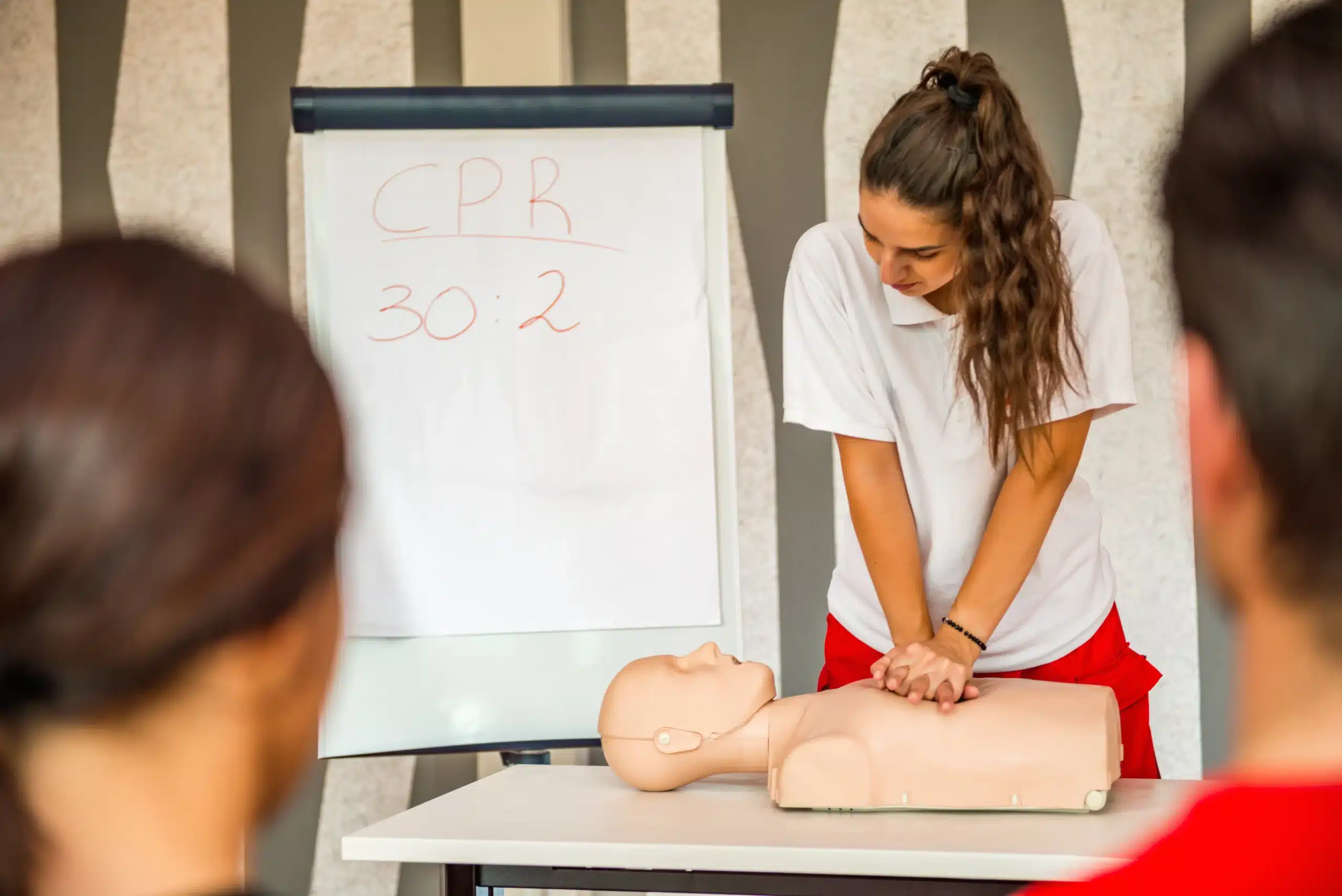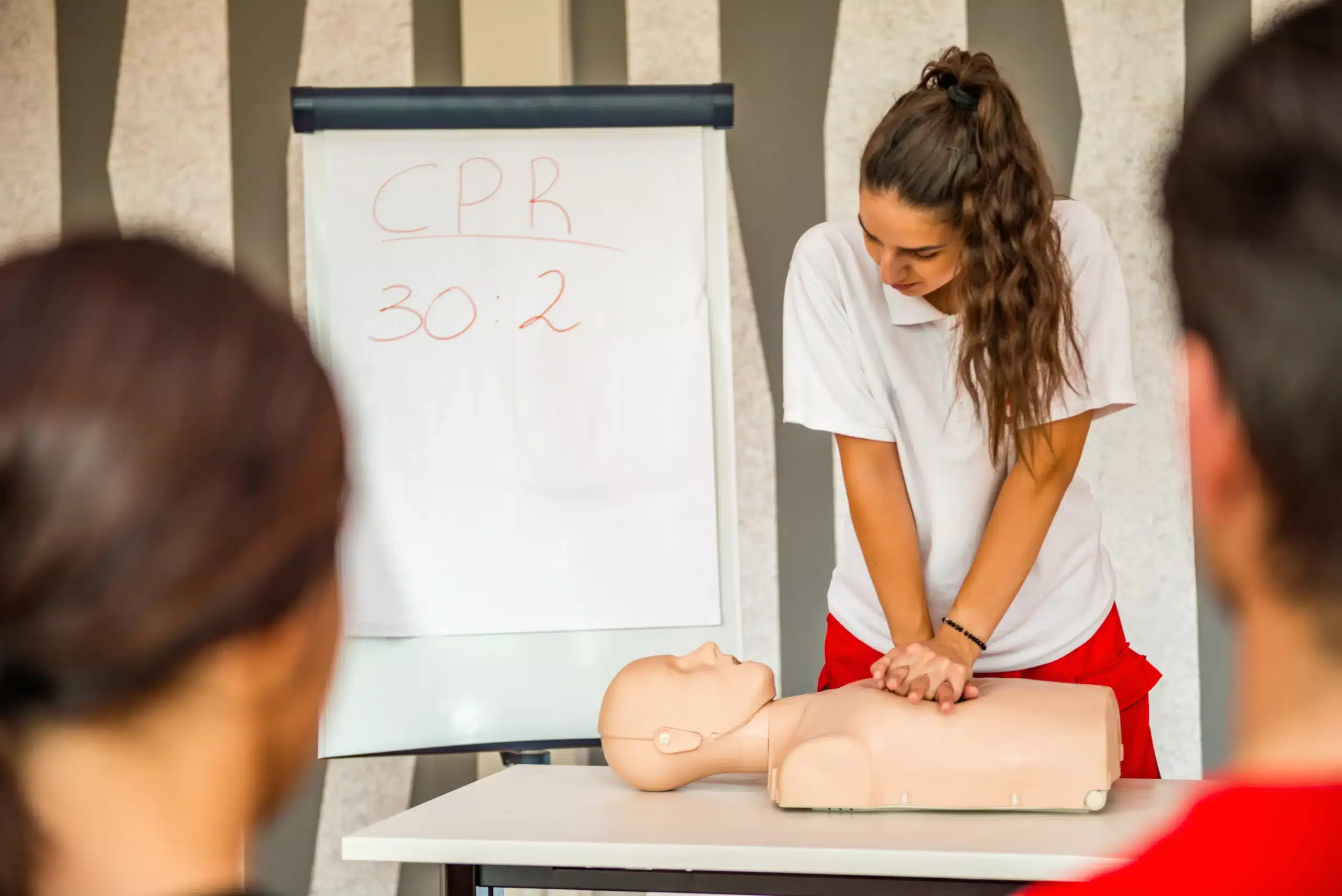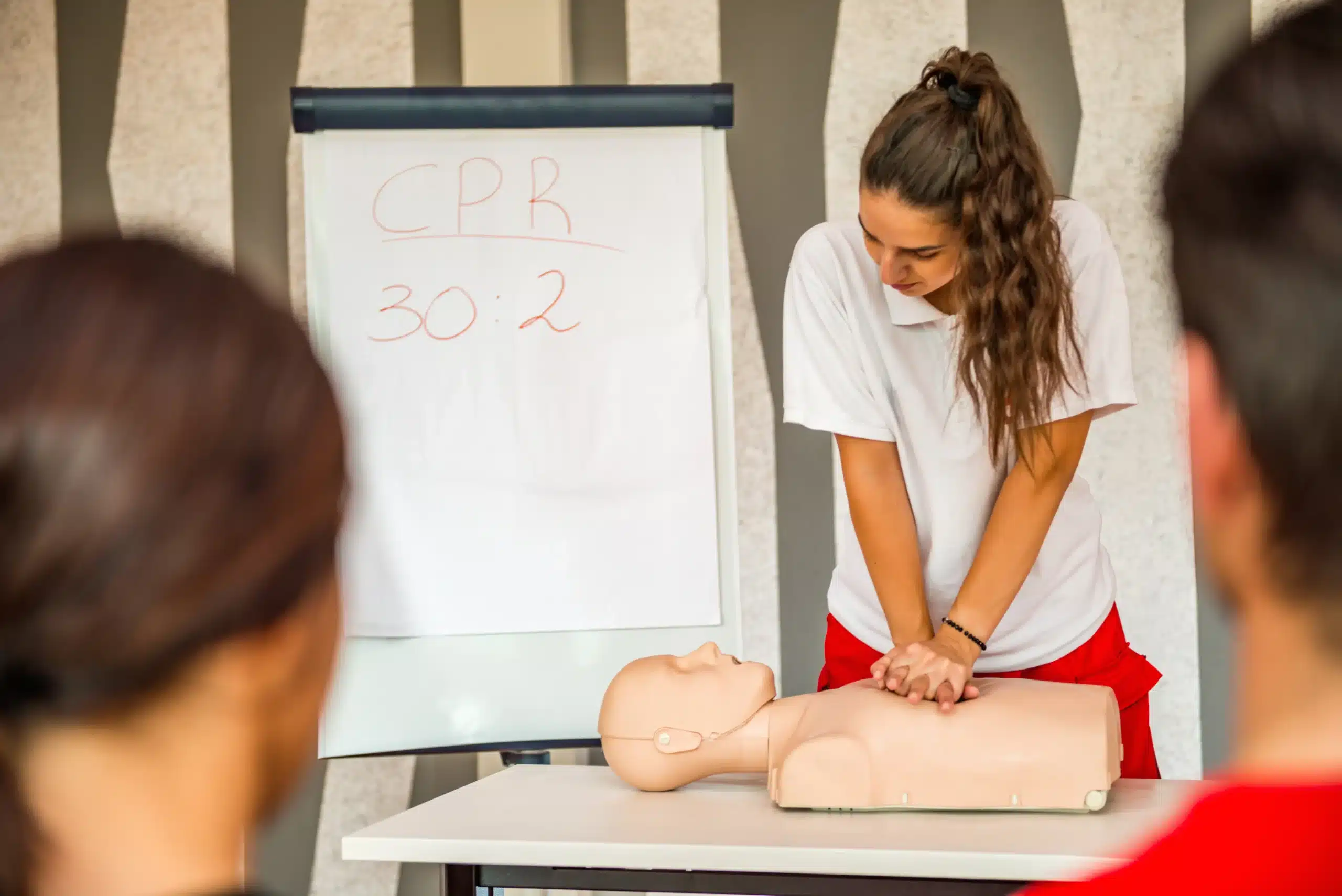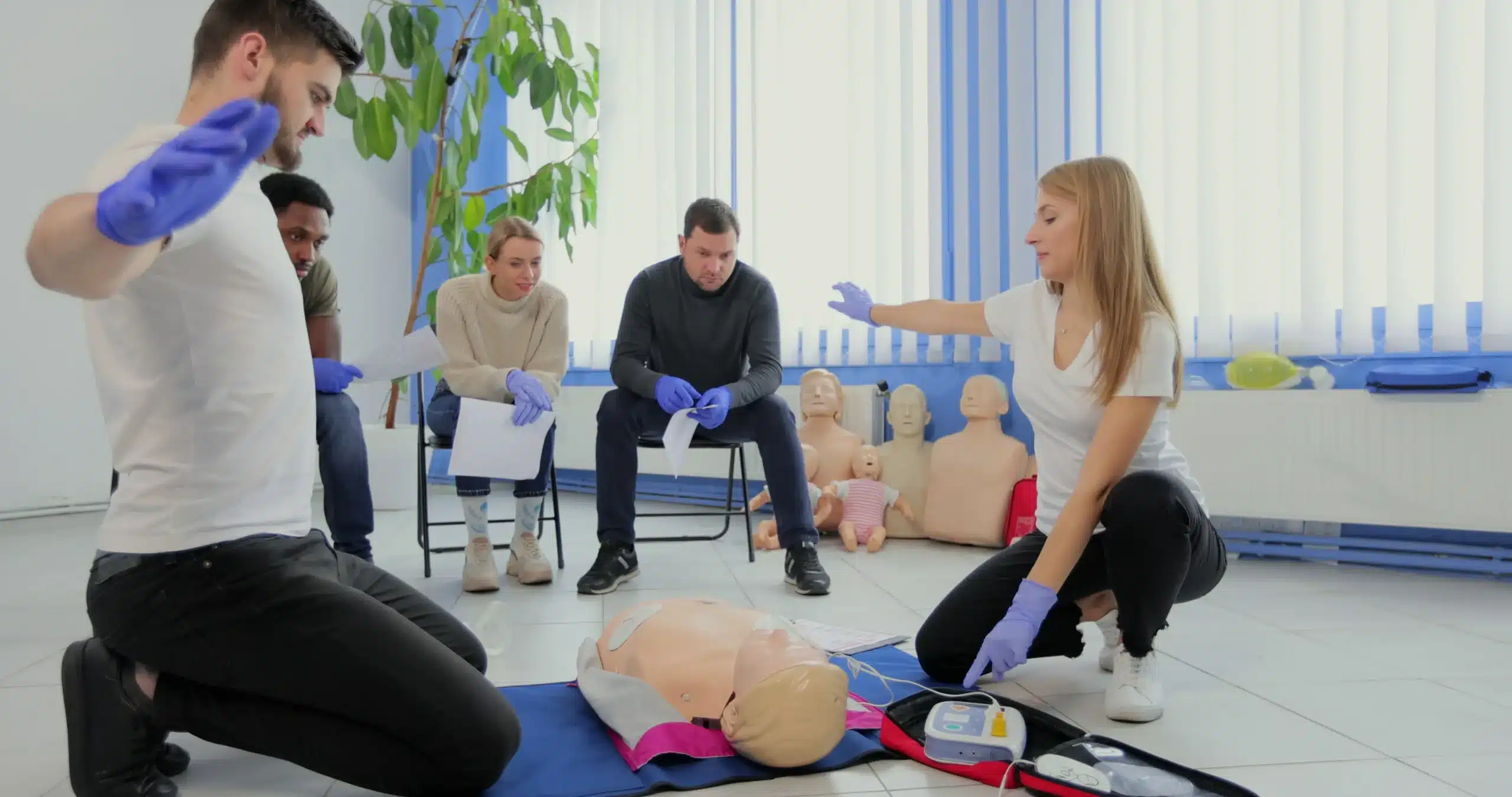Juggling the demands of a healthcare career often leaves little room for extra tasks, like keeping up with certifications. But BLS recertification is non-negotiable, a cornerstone of providing safe and effective patient care. Feeling overwhelmed? Take a deep breath. This guide is your roadmap to navigating BLS recertification with ease. We’ll cover everything from understanding the requirements to finding convenient options for “bls recertification near me,” so you can confidently maintain your skills and focus on what matters most—your patients.
Key Takeaways
- Maintain your life-saving skills with BLS Recertification: Regularly refreshing your BLS certification ensures you’re prepared to respond effectively in emergencies. Choose a course format—online or in-person—that suits your learning style and busy schedule.
- Find a course that fits your needs: Explore various avenues to locate BLS recertification courses, from online searches to local hospitals and training centers. Consider factors like cost, location, and the provider’s reputation when making your choice.
- Prepare for recertification and choose a quality provider: Understand the prerequisites and required documentation before signing up for a course. Select a reputable provider, like the American Heart Association, American Red Cross, or a trusted local provider like Concord CPR Classes, to ensure high-quality training.
What is BLS Recertification?
BLS Recertification is a refresher course for healthcare providers—doctors, nurses, EMTs, and other professionals—to renew their Basic Life Support (BLS) skills and keep their credentials current. It covers essential life-saving techniques, including CPR, recognizing and responding to life-threatening emergencies, using an AED, and relieving choking. Think of it as a tune-up, making sure you’re always ready to provide the best possible care when it matters most. If you’re a healthcare professional, BLS recertification is essential for maintaining your skills and often a job requirement.
Why Stay Current?
Staying up-to-date with your BLS recertification is crucial. It ensures you’re equipped with the latest knowledge and techniques in emergency cardiac care, based on the most recent scientific guidelines from organizations like the American Heart Association. Healthcare practices and recommendations evolve, and recertification keeps your skills sharp and aligned with current best practices. Maintaining a current BLS certification demonstrates your commitment to providing high-quality patient care.
How Often Should You Recertify?
Generally, BLS certification is valid for two years. Check with your employer or a certifying organization like the American Heart Association to confirm specific requirements and deadlines. Don’t wait until the last minute—planning ahead can save you time and stress. If your certification lapses, you might need to take a full BLS course again, which can be more time-consuming and expensive than a recertification course. Consider factors like cost—online recertification courses are often more affordable—and whether you prefer in-person instruction or the flexibility of online learning. For quick and convenient recertification options, check out our RQI classes.
Find BLS Recertification Courses Near You
Finding the right BLS recertification course doesn’t have to be a headache. Whether you prefer online learning or hands-on training, several avenues can help you locate a course that fits your needs and schedule.
Search Online
The internet is your best friend when searching for local BLS recertification courses. Start by searching for “BLS recertification near me” or “BLS classes near me.” Reputable providers like the American Red Cross and the American Heart Association often appear high in search results, along with local institutions like Concord CPR Classes. Many organizations offer online BLS recertification, providing a flexible option. You can also check out resources like this guide to finding BLS classes for more tips.
Check Local Healthcare Institutions
Hospitals and clinics frequently offer BLS certification and recertification courses. These courses are typically high quality and taught by experienced medical professionals. Reach out to hospitals in your area or check their websites for course schedules. This guide mentions that many local hospitals partner with organizations like the American Heart Association to provide these courses.
Explore Community Colleges and Training Centers
Community colleges and vocational schools are another excellent resource for BLS recertification. These institutions often offer a range of healthcare-related courses, including BLS, at affordable prices. Check the websites of community colleges in your area or contact their continuing education departments. This resource highlights how community colleges provide accessible BLS training. Additionally, dedicated training centers like Berkeley CPR Classes often offer comprehensive BLS courses that cover everything from online coursework to the skills test and your official certification card.
Online vs. In-Person Recertification: Which is Right for You?
Deciding between online and in-person BLS recertification depends on your learning style, schedule, and budget. Both formats have advantages, so let’s explore what each offers.
Advantages of Online Recertification
Online recertification offers incredible flexibility. You can renew your BLS certification from anywhere with internet access, fitting the coursework around your schedule. This works well for busy professionals juggling work, family, and other commitments. Online courses are often cost-effective, sometimes offering lower prices than in-person classes. Plus, many provide instant feedback and let you learn at your own pace.
Benefits of In-Person Training
In-person BLS recertification emphasizes hands-on learning and real-time feedback from an instructor. The American Red Cross highlights the benefits of this blended learning style, combining online coursework with in-person skills sessions. This lets you study independently and then practice your skills in a group. In-person training also allows you to ask questions, clarify doubts, and learn from others’ experiences. This interactive setting can be especially helpful for those who prefer a more structured learning experience. For local in-person options, check out BLS recertification classes near you.
Choose the Right Format
Choosing the right format boils down to understanding your needs and preferences. Consider your learning style: Do you thrive independently or benefit from face-to-face instruction? Think about your schedule: Do you need online learning’s flexibility or prefer a structured in-person class? Finally, factor in your budget. Local institutions like Concord CPR Classes often have competitive pricing and convenient options. Weigh these factors to determine the best fit for your BLS recertification.
How Much Does BLS Recertification Cost?
Getting recertified in Basic Life Support (BLS) is an investment in your skills and career. But how much does it actually cost? The answer varies. Several factors influence the final price, and understanding them can help you budget effectively.
Typical Price Ranges
BLS recertification is generally less expensive than initial certification. Expect to find courses ranging from around $50 to $80. Remember, the price depends on several factors, so don’t be surprised if you see some variation. CPRCare discusses how the choice of provider plays a significant role in the overall cost.
Factors Affecting Cost
One of the biggest factors is the course format: online versus in-person. Online recertification is often more affordable, while in-person classes provide hands-on practice. Your location also matters; prices can differ between regions. If your certification has lapsed, you might need to take a full BLS course again, which is typically more expensive than a refresher. Additional fees, like those for study materials or exam processing, can also impact the total cost.
Discounts and Promotions
Look for discounts! Many providers offer promotions for group registrations, students, or returning customers. Some organizations, like American BLS, even publish promo codes. Also, check if training materials are included in the course fee—many BLS renewal courses bundle these resources. This AHA BLS Recertification guide offers helpful tips on factors to consider when choosing a provider. Contact different providers and compare what they offer to find the best value. At Concord CPR Classes, we offer discounted group classes to make high-quality training accessible.
BLS Recertification: Prerequisites and Requirements
Before signing up for a BLS recertification course, it’s helpful to understand the prerequisites. Knowing the requirements ahead of time streamlines the process and ensures you’re prepared.
Current Certification Status
You must hold a current Basic Life Support certification from a recognized provider like the American Red Cross or the American Heart Association (AHA). Some providers allow a grace period of up to 30 days after your certification expires, so check with your chosen provider for their specific policy. This requirement confirms you’re already familiar with the core concepts and skills, ready to build upon your existing knowledge.
Recertification Time Frame
AHA BLS certifications are typically valid for two years. Aim to complete your BLS recertification course before your current certification expires to maintain continuous coverage. If your certification has recently lapsed, check with your provider about their grace period policy. You might still be eligible for recertification within a short window after the expiration date.
Required Documentation
While specific requirements vary by provider, you’ll likely need proof of your current or recently expired BLS certification. This might involve uploading a digital copy or bringing a physical copy of your certification card to the recertification class. Upon successful completion of the recertification course, you’ll receive a new certification card, often in digital format. Digital certificates offer easy access for printing and sharing. They also meet the requirements of most employers and organizations.
Top BLS Recertification Providers
Finding the right BLS recertification provider is key to maintaining your skills and credentials. Here are a few reputable options to consider:
American Heart Association
The American Heart Association (AHA) sets the standard for CPR and emergency cardiovascular care. They offer several ways to renew your BLS certification, including online courses and in-person classes. This flexibility allows you to choose the learning format that best suits your needs and schedule. The AHA also provides updated guidelines for BLS, ensuring your training reflects the latest best practices.
American Red Cross
The American Red Cross is another well-respected provider of BLS certification courses. Their training programs are valuable for healthcare providers and other professionals seeking to maintain their life-saving skills. You can often find Red Cross BLS courses offered through local hospitals, community colleges, and other training centers.
National CPR Foundation
The National CPR Foundation offers a cost-effective way to recertify your BLS skills. Their online recertification course is AHA-compliant and can be completed quickly, making it a convenient option for busy professionals.
ProTrainings
ProTrainings focuses on providing online BLS courses tailored to healthcare professionals. With their online BLS renewal options, you can stay up-to-date with the latest guidelines and maintain your competency in providing high-quality care.
Concord CPR Classes
Concord CPR Classes offers high-quality, affordable BLS recertification right here in Concord. We pride ourselves on competitive rates and a low-price guarantee. Our courses adhere to the latest AHA guidelines, equipping you with the knowledge and skills to respond effectively in emergencies. Serving Concord, Walnut Creek, and Pleasant Hill, our convenient location makes renewing your certification easy and accessible.
Choose the Right BLS Recertification Course
Picking the right BLS recertification course is key to maintaining your skills and confidence. Here’s what to consider:
Evaluate Provider Reputation
A provider’s reputation speaks volumes. Look for established organizations with a history of quality training. Seek out providers endorsed by reputable organizations like the American Heart Association. Consider factors like how long they’ve been offering BLS courses and their standing within the healthcare community. A solid reputation often translates to a worthwhile learning experience.
Check Course Content and Quality
Does the course cover the latest BLS guidelines and techniques? A good recertification course should refresh your knowledge of essential procedures like CPR and using an AED. Look for courses that offer hands-on practice and skills checks. Also, see if the provider offers any additional training, like ACLS or PALS, that might interest you. Expanding your skillset can be valuable in your career.
Assess Instructor Qualifications
Experienced instructors make all the difference. Check if the instructors are certified healthcare professionals with a strong background in BLS. Instructors who are actively working in the field often bring real-world insights to the classroom. Many local hospitals and community colleges offer BLS certification courses. You can also find excellent instructors at dedicated training centers like Concord CPR Classes.
Read Student Reviews
What are past students saying? Student reviews offer valuable perspectives on the quality of instruction, the course materials, and the overall learning experience. If a colleague recently completed a BLS recertification course, ask for their recommendation. Personal referrals can be a great way to find a course that fits your needs.
Related Articles
- BLS Renewal in Pleasant Hill: Your Guide – Concord CPR Classes
- BLS Renewal in Concord: Your Complete Guide – Concord CPR Classes
- Find BLS Classes Near Me: A Practical Guide – Concord CPR Classes
- BLS HeartCode Training in Concord: Your Guide – Concord CPR Classes
- BLS for Healthcare Providers in Concord: A Complete Guide – Concord CPR Classes
Frequently Asked Questions
Why is BLS recertification important? BLS recertification keeps your life-saving skills sharp and aligned with the latest guidelines from organizations like the American Heart Association. It’s essential for providing high-quality patient care and often a job requirement for healthcare professionals. Plus, staying current demonstrates your commitment to best practices in emergency cardiac care.
How do I find a BLS recertification course near me? Start by searching online for “BLS recertification near me.” Check local hospitals, clinics, community colleges, and dedicated training centers. You can also explore online directories and resources like the American Heart Association website. Don’t hesitate to contact providers directly to discuss your needs and preferences.
What’s the difference between online and in-person BLS recertification? Online recertification offers flexibility and affordability, allowing you to learn at your own pace from anywhere with internet access. In-person classes provide hands-on training, real-time feedback from instructors, and the opportunity to learn from others in a structured environment. The best choice depends on your learning style, schedule, and budget.
How much does BLS recertification typically cost? BLS recertification generally costs less than initial certification, usually between $50 and $80. However, the price can vary based on factors like the course format (online or in-person), your location, and whether your current certification is still valid. Look for discounts and compare prices from different providers to find the best value.
What are the prerequisites for BLS recertification? You’ll need a current or recently expired BLS certification from a recognized provider like the American Heart Association or the American Red Cross. Check with your chosen provider for their specific requirements regarding the expiration date and any necessary documentation, such as a copy of your certification card.



